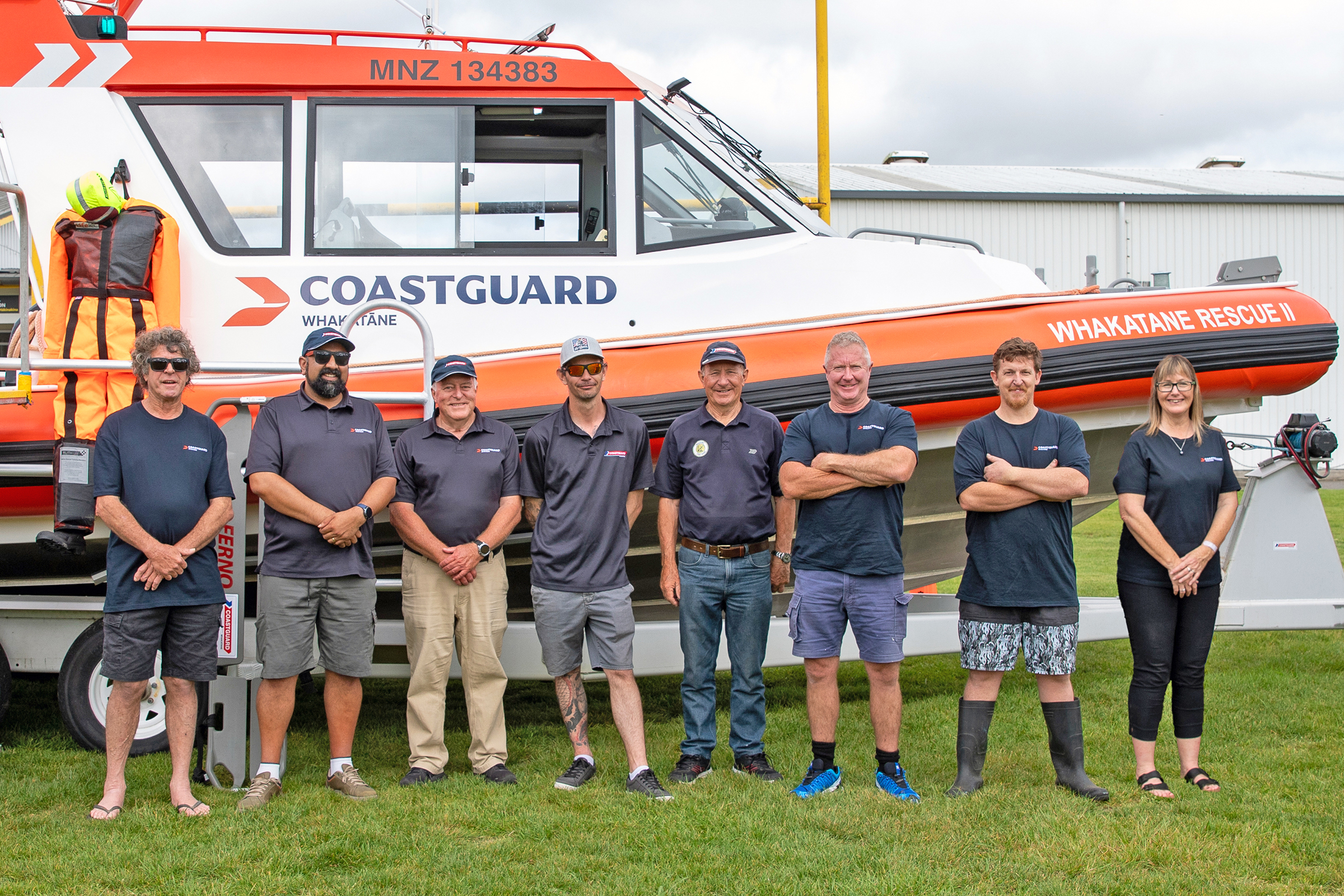Coastguard call to get boats summer ready

SAFETY FIRST: Coastguard Whakatāne at the Emergency Services Open Day. Photo Peter Green
.
The days are getting longer, the temperatures are rising, and the call of the water is becoming irresistible.
It’s easy to overlook the basics in the excitement of the holiday period and wanting to make the most of days off and good weather by being out on the water.
Coastguard Whakatāne says for the safety of everyone onboard there are a number of things that should be done before you venture out, especially if your boat has been inactive over winter.
President Nilesh Dahya said the biggest priority after a period of lay-up was a mechanical check-up, particularly the engine and fuel system.
“Engine failure is the number one reason for needing assistance on the water. Start by paying close attention to the fuel lines and tanks.
“Change the fuel, engine oil and filters. If this wasn’t done before winter storage, it’s a must, as old fuel may be contaminated or degraded and can cause wear and tear.
“Check all lines and connections for cracks, leaks, or signs of hardening.
“A quick battery check is also vital. Terminals should be clean and secured, and the battery fully charged to guarantee a reliable start.”
Mr Dahya said a skipper was responsible for the safety of everyone on board.
“Ensure you have correctly sized and non-expired life jackets for every passenger.
“Check the expiry dates on all distress signals, including flares and EPIRBs. Carry two forms of communication such as a VHF radio and a cell phone. Ensure navigation lights and other equipment are fully operational.
“Confirm your boat’s call sign registration and insurance are current.
“And don’t forget to log a trip report with Coastguard on VHF Channel 18. Getting in touch with Coastguard Radio when you hit the water, and again when you are back home, is a great way to let someone know where you are going, when you plan to be back and how many people are on board.
“This makes our response quicker in the event we need to search for you.
“Finally, make sure your Coastguard membership is up to date.
“We’ll come out and help members and tow them home if necessary for free.
“Non-members are charged $375 for each hour our boat is on the water. At just $85 per year, membership is cheap insurance.”
Mr Dahya said for serious situations, Coastguard Whakatāne was proud that the average time it took to get their boat on the water after the initial call was just 7 minutes – an incredible result thanks to the dedication of the volunteer crews.
Whakatāne had their three vessels on display at last weekend’s Emergency Services Open Day.
Volunteers appreciated a great opportunity to educate the public on the role of Coastguard and promote boat preparedness and safety.
“A well-prepared boat is a safe boat,” said Mr Dahya.
“By following these essential pre-season steps, you’ll ensure that your first trip of the summer is smooth sailing, letting you focus on the fun of being on the open water.”